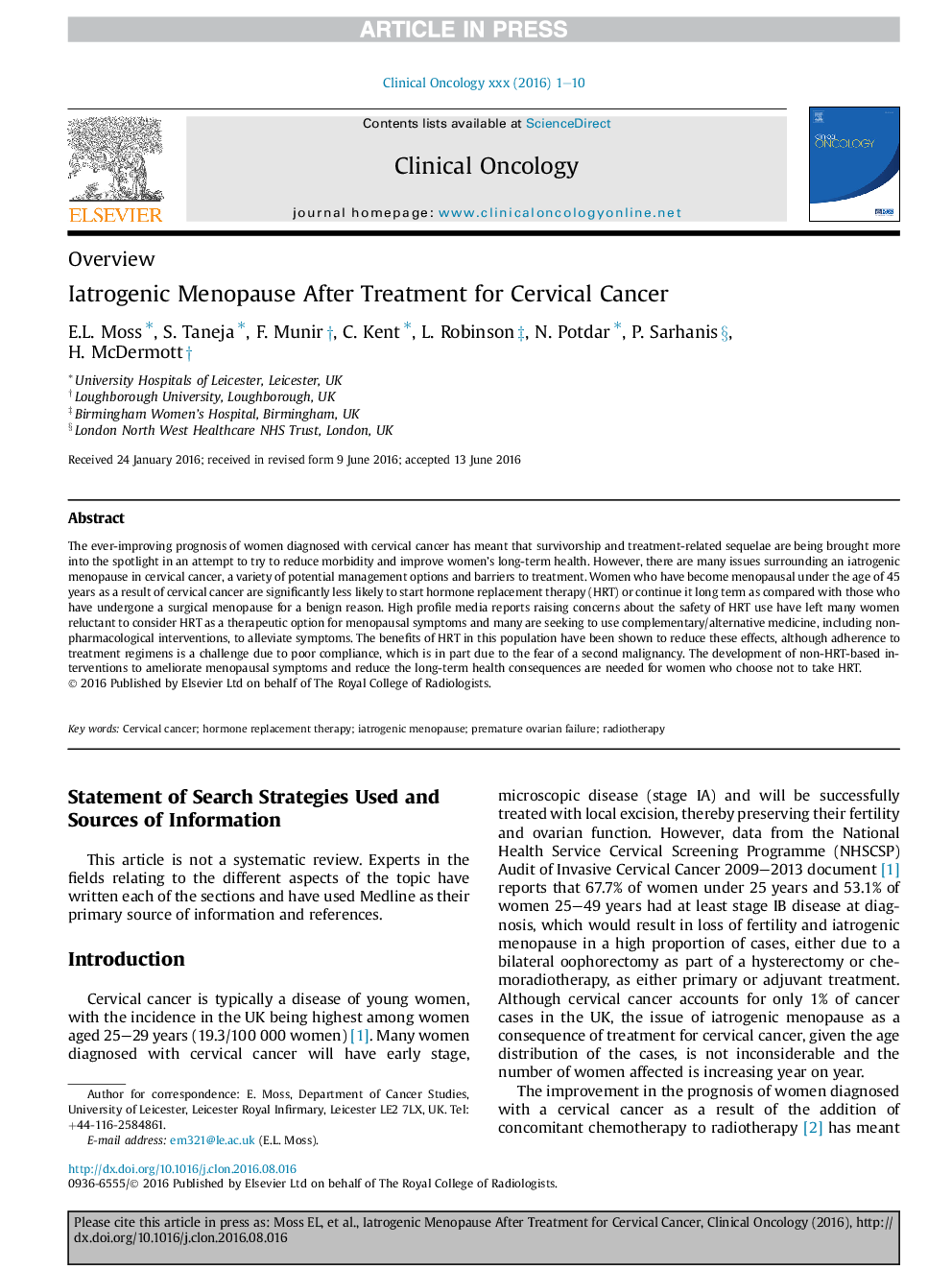| Article ID | Journal | Published Year | Pages | File Type |
|---|---|---|---|---|
| 5698441 | Clinical Oncology | 2016 | 10 Pages |
Abstract
The ever-improving prognosis of women diagnosed with cervical cancer has meant that survivorship and treatment-related sequelae are being brought more into the spotlight in an attempt to try to reduce morbidity and improve women's long-term health. However, there are many issues surrounding an iatrogenic menopause in cervical cancer, a variety of potential management options and barriers to treatment. Women who have become menopausal under the age of 45 years as a result of cervical cancer are significantly less likely to start hormone replacement therapy (HRT) or continue it long term as compared with those who have undergone a surgical menopause for a benign reason. High profile media reports raising concerns about the safety of HRT use have left many women reluctant to consider HRT as a therapeutic option for menopausal symptoms and many are seeking to use complementary/alternative medicine, including non-pharmacological interventions, to alleviate symptoms. The benefits of HRT in this population have been shown to reduce these effects, although adherence to treatment regimens is a challenge due to poor compliance, which is in part due to the fear of a second malignancy. The development of non-HRT-based interventions to ameliorate menopausal symptoms and reduce the long-term health consequences are needed for women who choose not to take HRT.
Keywords
Related Topics
Health Sciences
Medicine and Dentistry
Oncology
Authors
E.L. Moss, S. Taneja, F. Munir, C. Kent, L. Robinson, N. Potdar, P. Sarhanis, H. McDermott,
